

The coast with the most
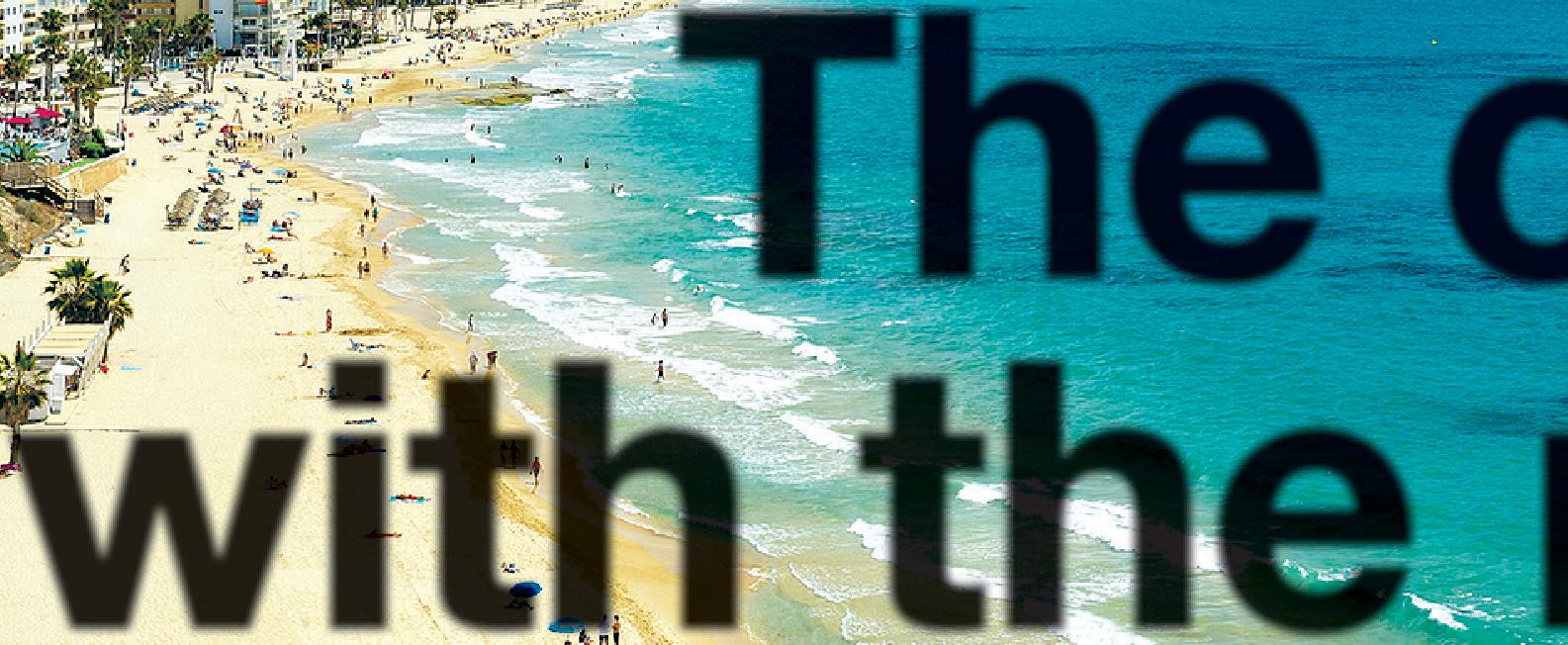
THE 2025 Costa Blanca property scene is alive and kicking. According to Engel & Völkers, average apartment prices now stand at €2,971 per m² - a 6.4 per cent increase year on year, while houses average €2,496/m², up 8.3 per cent. Across the wider Valencian Community, new dwellings surged 23 per cent in 2024 and urban land prices climbed 2 per cent annually, according to Global Property Guide - clear signals of accelerating demand.
Local experts also point to significant
differences between Costa Blanca’s northern and southern markets. While the north appeals to buyers seeking traditional villas and natural scenery, the south draws interest for its long beaches, golf resorts, and vibrant international communities. According to Spanish Property Insight, sales across the Costa Blanca North rose by 6 per cent year-on-year in early 2024, with 29,366 transactions recorded. Growth is balancing after a post pandemic surge, but investor appetite - especially from the

UK, Northern Europe and the increasing remote worker demographic - remains strong.
On the national stage, Spain’s resale home prices jumped 10.7 per cent by November 2024, reaching €2,244/m². This is the fastest increase since 2006, according to Idealista. Rentals also rose sharply: average monthly rents across Spain hit €14/m² in early 2025 - a 10.3 per cent annual increase - driven by intensifying demand. These trends are echoed locally, reinforcing the appeal of

Costa Blanca’s holiday rental and livin’ la vida loca markets.
Read on for a finely tuned summary of the Costa Blanca property market. From urban hubs and tranquil seaside villages to general homeware trends and advice. Whether you’re seeking a holiday home, retirement haven or rental investment, step confidently into today’s vibrant Costa Blanca property scene. With demand outpacing supply in many towns, buyers are acting fast to secure their spot in this sun-soaked Spanish region.
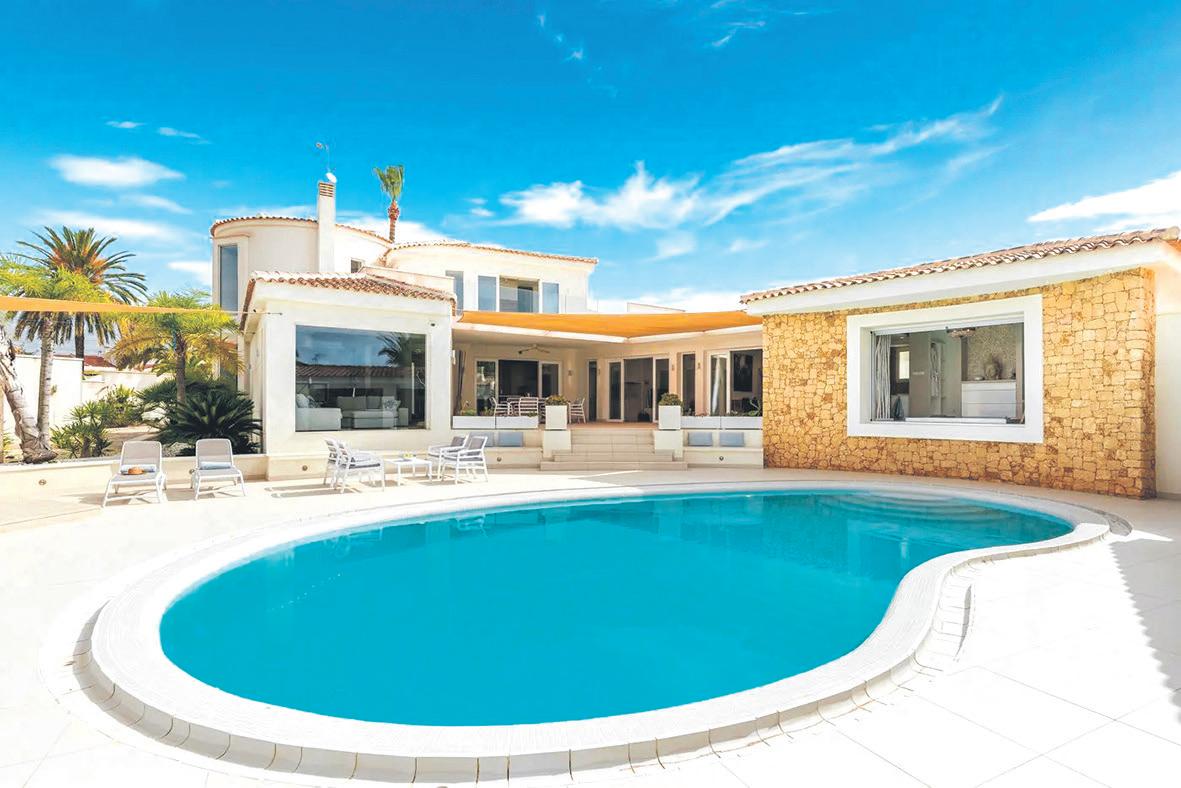


Early Summer Surge:
Why June is the last big window for sellers before the holiday high season
AS June unfolds along the Costa Blanca South, we’re entering the final - and often most decisive - window for serious property sales before the traditional summer high season. At Vistacasas, we’re seeing motivated international buyers eager to secure their spot in the sun, and for sellers, this is your chance to capitalise.
The clock is ticking - and so are buyer decisions
With July and August bringing the heat and holiday distractions, many buyers are locking in decisions now to avoid delays.
Properties in hotspots like La Zenia, Cabo Roig, and Villamartin are moving quicklyespecially those that are turn-key ready and well-marketed.
Why June still works for sellers
There’s a unique urgency in the air. Buyers are planning relocations, securing rentals, and looking to finalise deals. Listing your property now means you still benefit from peak visibility without getting lost in the summer noise.
Smart marketing is the game-changer
Our team at Vistacasas uses professional photography, immersive virtual tours, and digital campaigns that reach active international buyers wherever they arewhether that’s in the UK, Scandinavia, Belgium, or beyond. And we manage the full process, even if you’re selling from abroad.
List now, relax later
The goal? Get your property sold before July’s holiday mindset kicks in. If you’re considering a sale, now’s the time to act while buyer demand is still high, viewings are easy to schedule, and negotiations are moving fast.
Ready to get started? Visit www. sellwithvistacasas.com for your free valuation and let’s make your property the next success story.
Visit us in our Villamartin Plaza (behind BBVA Bank) OR Playa Flamenca office (near Sunny Corner Bar) info@vistacasas.com
Locksmith’s viral TikTok
A SIMPLE upgrade to your front door could help protect your home from thieves and squatters - and it’s more affordable than many think. Spanish locksmith Dismaur, now a TikTok sensation, has gone viral with a straightforward security tip: install a metal shield over your lock cylinder. This security cover hides the type of lock you have, making it harder for burglars to know what tools or techniques to use.
With squatting incidents rising in Spain and eviction processes often slow, homeowners are increasingly looking for ways to secure their properties. Dismaur warns that leaving your cylinder exposed is a major risk, as it offers intruders a blueprint for breaking in. By covering the lock, you add a crucial barrier that can delay or deter break-ins - often enough to make criminals move on.
For those willing to invest more, he recommends high-security op-
trick


Retro revival

One simple fix to your front door could stop thieves and squatters in their tracks - and it’s not as expensive as you think.
tions like the KESO 8000 OMEGA 2 ULTRA cylinder with a SAG bolt. But even a basic shield offers a strong first line of defence. Dismaur stresses that the goal isn’t to make your home impenetrable, but to make it not worth the effort. He also advises combining the shield with other deterrents, such as alarms, window locks, and keeping homes looking occupied. In Spain’s fight against okupas, even small security upgrades can make a big difference.
RETRO bathrooms are enjoying a big comeback, and it’s easy to see why. They bring charm and personality that modern, minimalist spaces often lack. Moving away from plain white schemes, today’s designs celebrate bold colours, fun patterns, and vintage character.
Bringing retro style into your bathroom doesn’t mean copying the past exactly. It’s more about blending old and new. A patterned wallpaper with a vintage print is an easy way to start. Adding bold colours, like soft pinks or mint greens, helps capture that nostalgic feel without being overwhelming.
You can also go classic with black-andwhite checker board tiles, or bring in retro materials like terrazzo, which was big in the mid-20th century. A free-standing bath with curved lines, inspired by Art Deco or Victorian styles, adds elegance and a touch of drama. Mixing pieces from different decades can give your bathroom a well-loved, lived-in look.





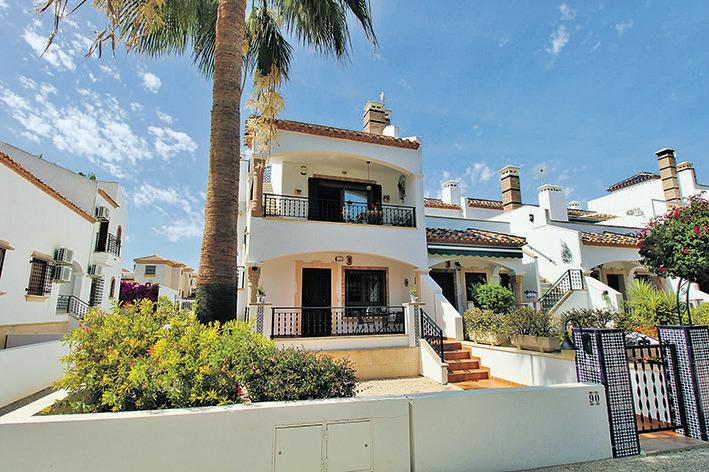

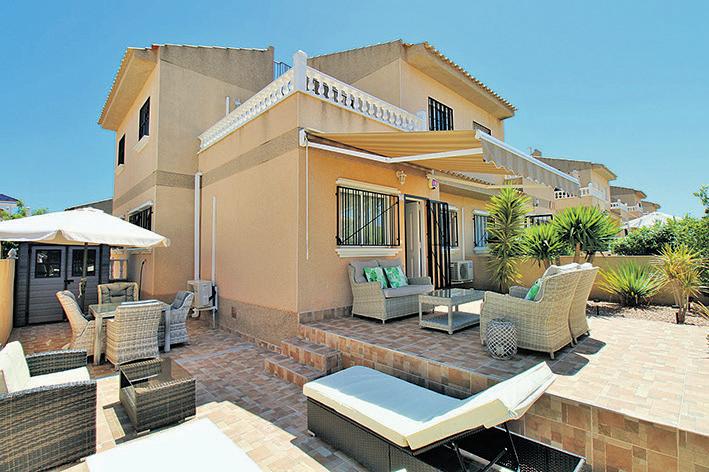
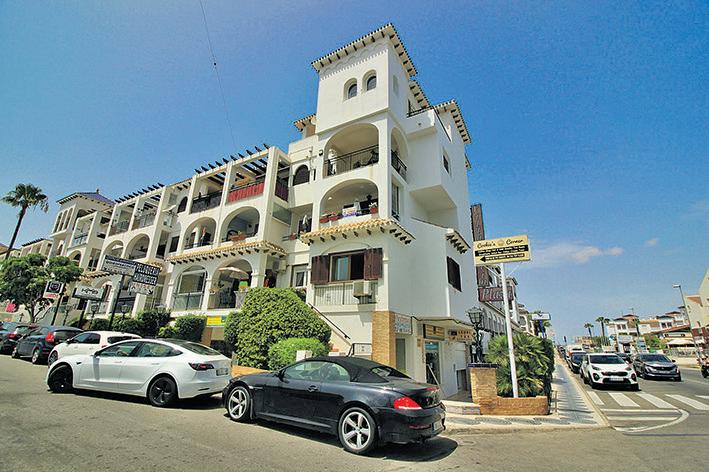






Why
Blanca matters -
BUYING a home in Spain is a dream for many - sun-soaked beaches, relaxed Mediterranean living, and the chance to wake up each day to the sound of the sea and the warmth of the sun. But turning that dream into a reality takes more than just good weather and beautiful views - it takes trust, guidance, and the right local expertise.
That’s why having a reliable and experienced real estate agent in Spain is not just helpful - it’s essential. From navigating the legal system and understanding the local property market, to managing paperwork and ensuring nothing is left to chance, your real estate agent is your guide, your advocate, and your support system all in one.
Costa Blanca - a place to call home
This month, we’re excited to shine the spotlight on what makes our presence on the Costa Blanca so unique. With its

charming towns, a strong international community, excellent services, and that authentic Spanish lifestyle everyone falls in love with, Costa Blanca offers an unmatched blend of tranquility and convenience.
• Expert sales team - Our multilingual agents are not just knowledgeable
about properties; they’re passionate about the area. We’ll show you the homes and also the lifestyle - guiding you through neighbourhoods, services, and hidden gems you won’t always find online.
• Full support during the purchase process - From negotiations to notary
here to make sure it does. Call us on +34 865 888 888 Or visit www.costa-blanca-eiendom.com/contact
appointments, we manage every detail to make the process clear and secure.
• Post-sale services - We go beyond the sale. Need help furnishing your home, managing renovations, or even setting up utilities? We have dedicated teams for after-sales care, legal services, and property administration.
• Move in with peace of mind - We make sure your property is not just purchased, but prepared and personalised, so you can start enjoying life in Costa Blanca from day one.
Let’s make your move to Spain simple and memorable
Whether you’re just starting to explore your options or you’re ready to buy, our team is here to guide, support, and inspire you at every step. We believe buying property in Spain shouldn’t feel like a risk - it should feel like the best decision of your life.

Shared property in Spain
or place solar panels on the roof? Who decides on the colour of doors and façades in a residential complex, or when the lift will be repaired?
In Spain, decisions like these are not left to individual homeowners. Instead, they’re typically regulated by the junta de propietarios - the residents’ meeting that governs shared properties under the Spanish Horizontal Property Act (Ley de Propiedad Horizontal, LPH).
These meetings are the core decisionmaking body for any building or residential complex. They approve budgets, discuss maintenance, and vote on changes like installing solar panels or upgrading lifts. Each homeowner has the right to attend and vote - but only if they’re up to date with community fees. Tenants and nonowners can only join if they hold written authorisation from an owner.
There are two types of meetings: ordinary (held at least once a year for routine matters) and extraordinary (called when urgent issues arise). Extraordinary sessions can take place as often as needed and may be triggered by the president or a group representing at least
25 per cent of the ownership shares. Meeting notices must be
communicated clearly, with at least six days’ notice for ordinary sessions. Channels can include email, printed notices or even WhatsApp - if all owners have agreed on that method. If meetings are called incorrectly, their decisions risk being invalidated. Decision-making rules vary depending
installations require one-third of owners to approve, accessibility upgrades yet formally regulate online meetings. Still, digital tools have helped increase
need a simple majority, and changes to community statutes demand unanimous agreement. Importantly, improvements considered non-essential can’t be forced on dissenting owners if they don’t benefit directly.
Since the pandemic, many communities have turned to virtual
participation, especially for voting and sharing information.
Ultimately, the junta de propietarios ensures that life in communal spaces runs smoothly. For expats navigating Spanish property life, knowing the rulesand their voting rights - is the first step to becoming an active and informed






A NAME TO REMEMBER!
Natalie and the multilingual team have some exciting news to share. The business has rebranded and is now Wolf Whelan Homes with the company motto ‘Hunting down your dream home in the sun!’ Their services include buying and selling properties, mortgages, currency exchange, NIE and TIE, financial and legal advice.
NATALIE has been in the Costa Blanca for 25 years. She says she got into the business “when I bought my first house here, I made friends with the estate agent and started doing videos for them and then it picked up. I’d basically been training up with other estate agents and seeing how they worked.
“I started my business during Covid selling properties online and sold at least 53 in the first year.” When we were allowed back out again, I set up my own office in Playa Flamenca, more and more customers arrived and that’s how I was able to add people to the office there. We’ve got a great team.”
The estate agency focuses on resale properties. “Most people come from Europe and the UK via our website and social media and when they arrive in Spain, they are handed over to the experienced team.”
Energy hog
THINK your fridge or washing ma chine is to blame for high energy bills? Think again. In Spanish ho mes, the biggest energy guzzler is often hiding in plain sight: the induction hob.

Natalie said they sell homes to about 75 per cent of those that come out to Spain. And “people are not just from the UK, but Ireland, Belgium, Norway, Iceland, America, Australia, everywhere, because everyone wants to find a place in the sun.” The key to providing

That sleek surface where you boil pasta or fry eggs uses more electricity than most other appliances.
While fridges and dryers run longer, the induction hob draws huge power in short, intense bursts, especially when all burners are cranked up.
Over time, those quick sessions add up. Electricity prices in Spain have climbed steadily, making energy awareness vital for saving money, not just for being eco-friendly.
People often unplug TVs, use LED bulbs, and limit heating, but the kitchen hob slips under the radar.
You don’t need to give up home-cooked meals to cut costs. Smarter cooking habits help: use lids on pots to speed up heating, try batch cooking, turn off the hob early to use residual heat, and stick to medium power when possible. Also, some Spanish electricity plans offer cheaper rates during certain hours, like mid-afternoon or late at night.
Timing your cooking sessions could make a real difference. The next time you’re at the stove, think before blasting every burner on high.
Your energy bill - and your budget - will thank you.
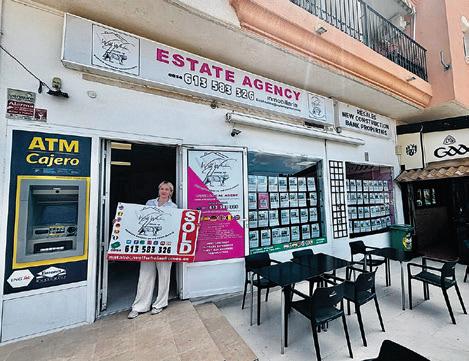
find people their best fit. We tour with clients, show them areas and ask them to decide where best matches their lifestyle. Taking care of all their wants and needs to specification.” They said “Take a leap of faith with us and let us guide you smoothly through the buying process.” Whether its resales, new builds, bank repossessions or golf and country properties.
Pop along and visit Natalie and the team in person to assist you in making your next dream come true!
a high-quality service is giving clients: “As much information as possible, we put them in touch with lawyers and offer a personal touch nobody ese does. They’re not just a number to us. We know it’s a scary and exciting leap buying a home abroad, we want to
Calle Guapilies, Local 3, Playa Flamenca 03189 natalie@wolfwhelanhomes.es www.wolfwhelenhomes.es Contact
Landlord tax
LANDLORDS in Spain could be missing out on thousands of euros if they’re not claiming appliance costs on their tax returns. Renting out a property isn’t cheap, especially when tenants expect fully equipped kitchens with fridges, washing machines and ovens as standard.
But under Spanish tax law, landlords can deduct part of the cost of those appliances - provided certain conditions are met. The rule is simple: the appliance must be installed, in use, and serving the rental property for at least one year. Short-term rentals or spare items kept in storage don’t qualify. Instead of claiming the full amount at once, landlords must amortise the cost over timetypically deducting 10 per cent of the purchase price each year. For example, a €600 oven

would allow a €60 annual deduction. Over time, those savings can add up. The deductions aren’t just limited to kitchen gear either. Improvements like air conditioning units, stair lifts, heating systems and even security doors can also be included, provided they enhance the property’s livability.
Tax consultant Juan Gutiérrez advises
landlords to make the most of these benefits, reminding property owners that smart investments not only attract better tenants but also ease the financial burden come tax season. In Spain’s increasingly competitive rental market, every euro counts - and knowing how to recover costs legally could give landlords a much-needed edge.
Credit : Zerbor, Shutterstock
Landlords in Spain can claim appliance deductions on their 2024 tax return.
Credit : brizmaker, Shutterstock


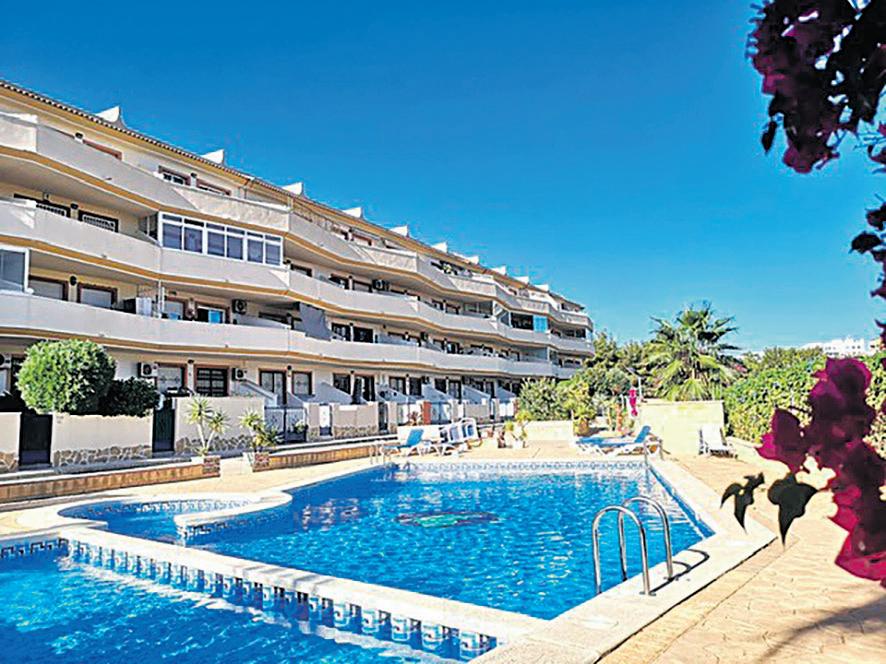



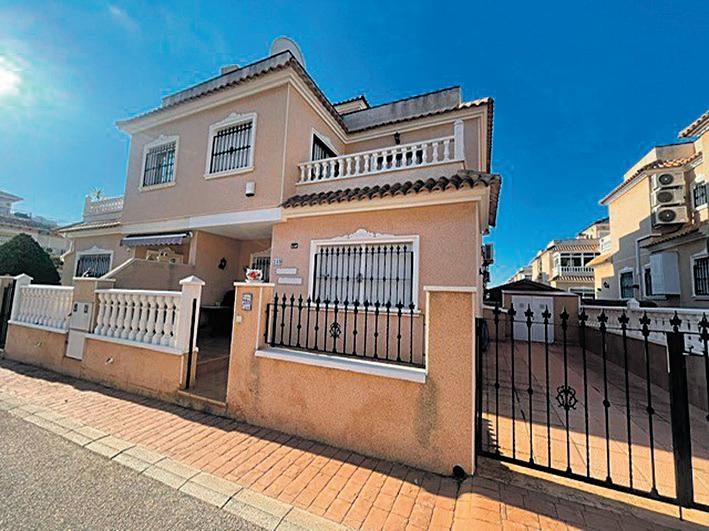


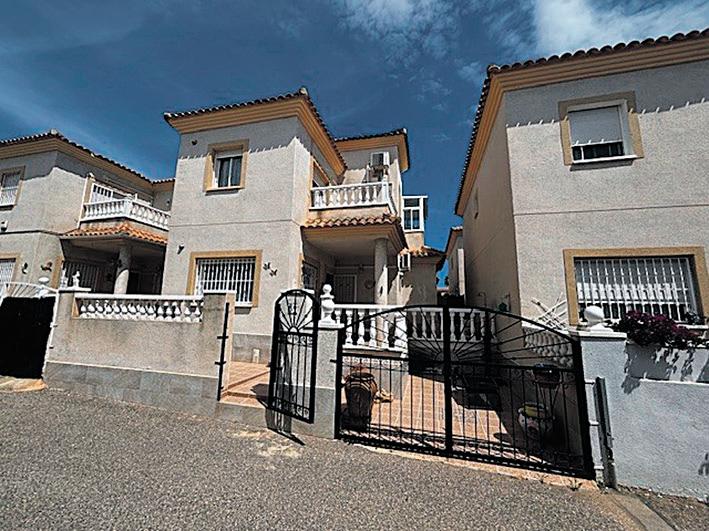






A guide to buying land to build your dream home in Spain
MORE and more expats in Spain are ditching the search for a ready-made home and opting to build from the ground up. Whether it’s the appeal of designing every detail yourself or simply a way to get better value for money, buying land and building your own property offers a unique opportunity.
But it’s not without its complications. If you’re thinking about going down this route, it pays to understand the key steps and potential pitfalls before you break ground.
Choosing the right plot
Spain categorises land primarily into two types: rústico and urbano. Rústico land is typically rural and often lacks essential infrastructure, making it unsuitable for residential construction. Conversely, urbano land is designated for development and usually has access to utilities like water, electricity, and sewage systems. However, even urbano plots may require additional investments to ensure full habitability.
Before purchasing, you’ll want to obtain a nota simple from the Land Registry to check for any existing debts or
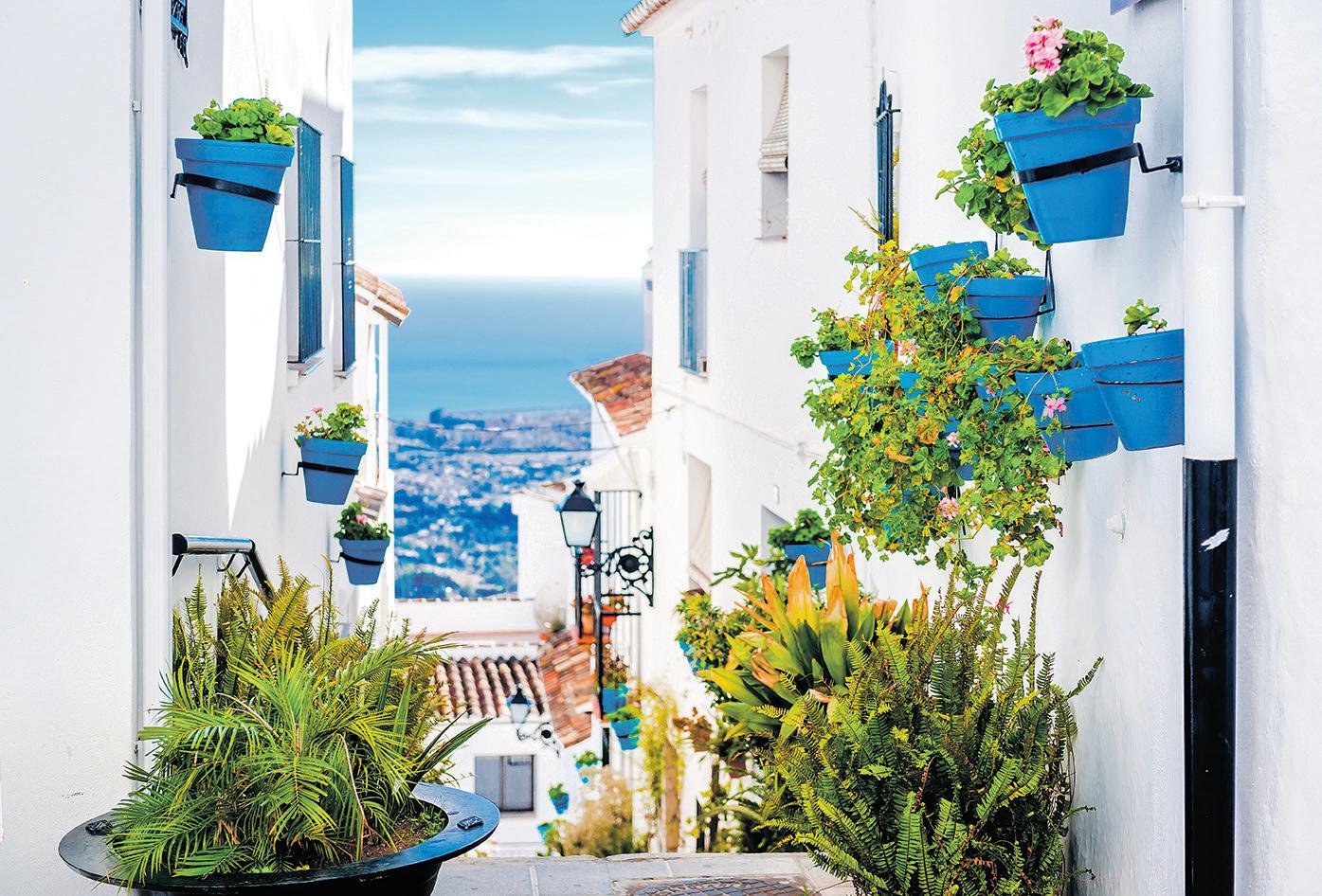
legal issues associated with the land. Additionally, consulting the local Plan General de Ordenación Urbana and obtaining a certificado urbanístico will provide insights into zoning regulations, building restrictions, and permissible land use.
Understanding the timeline
Building a home in Spain is a marathon, not a sprint. The design phase can span several months, followed by a four to six week period to prepare the building licence application. Approval for this licence may take additional months or even years, depending on the municipality. Once construction commences,
Sunrise Energy
SUNRISE ENERGY, is the local solar company you can trust to provide an impeccable and swift service. Joelle and Jose set up their business here in Spain after moving to Elche in 2022.
Joelle explained: “We are a small company, my husband has more than 11 years of experience in The Netherlands and Spain installing Solar Energy systems.
“After working for other companies, we decided to start our own. We started with one customer a week, that grew by word of mouth and a good reputation, to two or three installations a week. We have 35 five-star reviews on Google and take great pride in the service we provide our customers.”
One happy customer said “I cannot recommend these people highly enough. It’s lovely to see people take such pride in their work. Thank you, Sunrise Energy!”
They organise everything at each step of the installation process. “We arrange everything for our customers, from permits to installations and work with Iberdrola so that the customer doesn’t have to do anything. We speak English, Dutch and Spanish, it’s

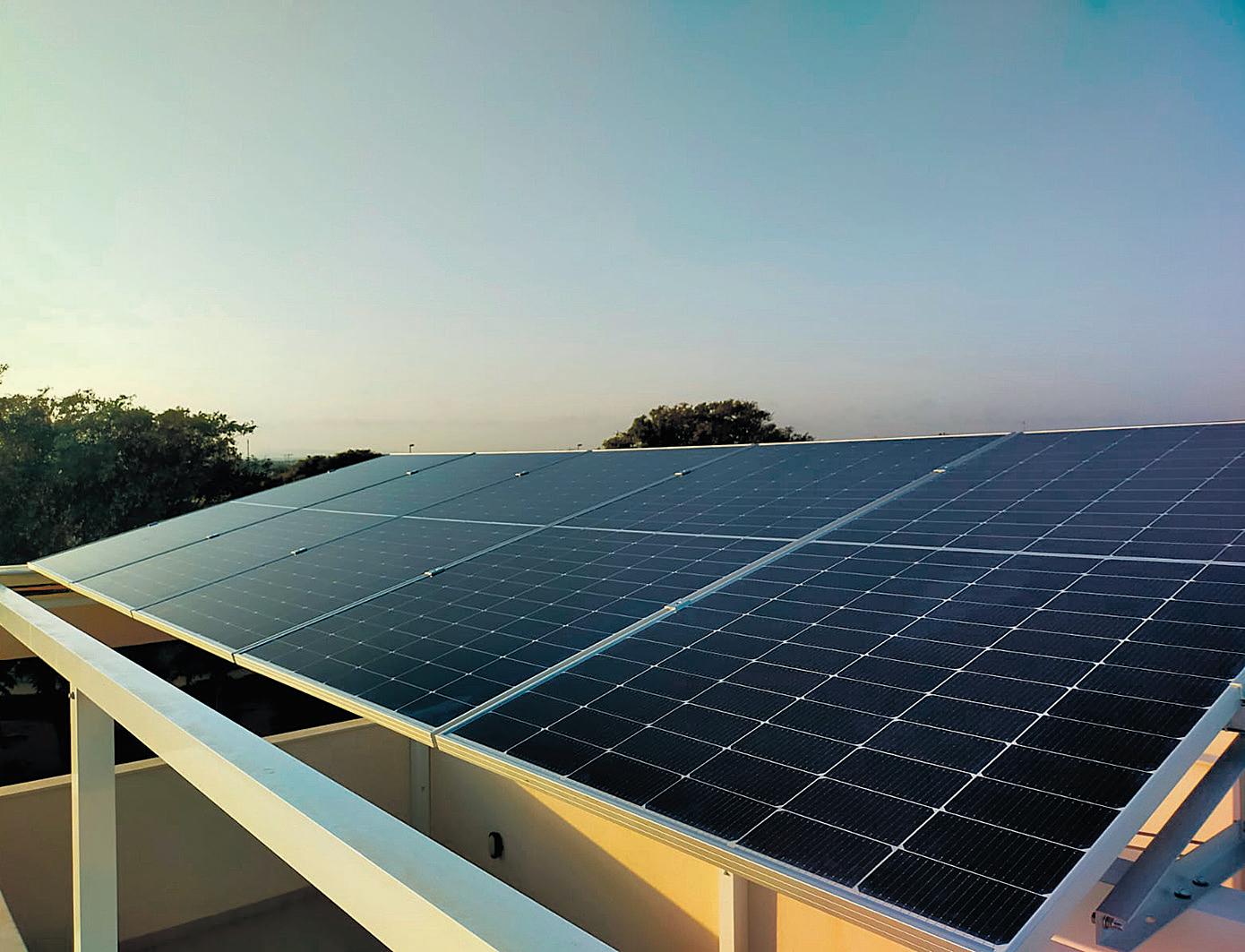
a small family business, so, our goal is that every customer is happy with the installations, we listen to what they want and consider how many solar panels are needed for their house’s energy consumption.” Sunrise Energy can even cater to those with specific brand
needs as they work with multiple companies to help source the panels that customers need for their systems.
Joelle explained installations are done by a team of three people. “We work with two self-employed fitters and we always try to complete in one
expect a timeline of up to two years before completion.
Financial planning and currency considerations
Financing a self-build project involves more than just the cost of land and construction. Additional expenses include surveys, legal fees, permits, and utility connections. It’s essential to create a comprehensive budget that accounts for these variables.
Those expatriates wishing to transfer funds to Spain to finance the project will also need to consider how fluctuating exchange rates can significantly impact their overall costs.
Unfavourable exchange rate movements can lead to unexpected expenses. While transfer fees can also eat into your budget.
With Currencies Direct you’ll benefit from competitive exchange rates, no transfer fees and a range of transfer options to help your money go further. Learn more about Currencies Direct by contacting your local branch. Alternatively, pop into one of our branches and speak to our multilingual experts.
ADVERTISING FEATURE
day but of course if it is raining, sometimes it takes slightly longer.
“We legalise very quickly, usually within one or two days, to a couple of weeks because until your panels have been legalised you can’t send electricity back to the grid.”
Prospective clients can easily schedule a visit from Jose, find out what system best fits the client’s house, roof and fuse box. Jose uses the information he takes from the house and adds it to solar software systems where “we can draw and calculate what the quoted equipment will look like on a tiled roof or flat roof etc. Then we make a quote by email and I always message a few days later to ask if there are any questions.”
“We ask for 50 per cent downpayment and then we start with the permits at the town hall, normally it takes about four to six weeks after that for full installation.”
To contact Sunrise Energy for a quote, go to their website www.sun riseenergy.es or phone Joelle on 644 797 751, the company usually gets back in contact within 24 hours.


